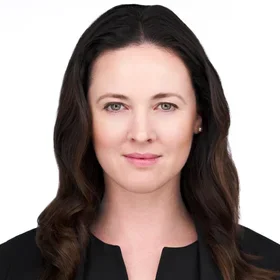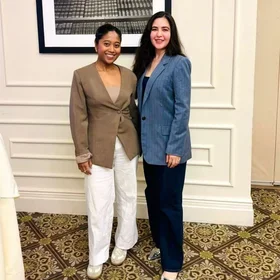Akri Çipa has never been content to focus on just one thing. Born and raised in Albania, he attended the American University in Bulgaria (AUBG), where he double-majored in political science/international relations and business administration, while also minoring in philosophy and religion. And it was the chance to pursue an interdisciplinary course of study that drew him to the Master of Science in Negotiation and Conflict Resolution (NECR) program at Columbia, where he graduated in 2019. He currently works as a researcher and foreign policy expert and consultant in Tirana, Albania.
What led you to the NECR program and inspired you to apply?
In my senior year at AUBG, I started looking for an adequate graduate program for me. At the time I had visited the United States only once before, but I spent about two weeks in New York City, and fell in love with the city. Thus, my ideal choice would have been a school in NYC—and, of course, Columbia was my first choice.
One day, while skimming through the website of Columbia and the various schools, I happened to encounter the Negotiation and Conflict Resolution program by chance. What struck me was the interdisciplinary nature of the program and the vast array of fields that were studied in the various courses. It gave me the impression that it was not a monolithic program; it seemed very flexible and student-focused. This was the main thing that eventually led me to apply.
Though I had a mixed background in business and in politics and international affairs, I decided that in terms of my career I wanted to focus on the latter. Due to the great flexibility of the NECR program with elective courses, I also took the opportunity to enroll in those courses from the School of International Public Affairs (SIPA) that were more tailored to my interests.
What did you enjoy or find most gratifying about your experience?
The experience that I had at Columbia was intense but not all-consuming, and so I was able to continue with one of my passions, writing. I have published three books—one nonfiction and two poetry books—and two of them were published in Albania while I was in NYC doing my Master’s. I really valued the fact that the school workload, while considerable, was manageable and it allowed me to also do other fulfilling things.
Because the program is so interdisciplinary, at times I had a sense of insecurity as to where I would ultimately find myself at the end of my Master’s degree. Sometimes I would ask myself and my friends, “How am I ever going to use this?” or “What does this have to do with what I am interested in?” However, my professors—especially the Academic Director, Beth Fisher-Yoshida—assured me that everything would tie together and make sense in the end.
As I began working on the capstone project, I started to find myself reflecting more and more on everything that I had learned. Miraculously, I started understanding the utility of every text that we had read and every exercise that we had completed. Ultimately, during the presentation of my capstone, I really had that epiphany about how everything did indeed connect at the very end.
That sense of purpose, that sense of working hard to achieve something, and that idea of perpetual growth were extremely gratifying.
That sense of purpose, that sense of working hard to achieve something, and that idea of perpetual growth were extremely gratifying. It was fulfilling, and at the same time, a realization that the journey had just begun. It is a parable for everything we do in life.
How has your experience at Columbia impacted your professional work since graduating?
After completing the degree, I have continued my research and work on some of the topics that interested me the most, most particularly about developments in the Balkans, efforts to solve the various bilateral issues and the protracted conflicts in the region, and the EU enlargement process to the Western Balkans (about which I recently published an article). During my work in these fields I have had the opportunity to use some of the theories that we studied and discussed during the various classes, especially those that were more oriented towards international conflicts and the interstate level.
The good thing about the program is that it was built in a way that combined theories and methodologies with practical skills. These soft skills that I learned and laboriously practiced in the various workshops, presentations, and simulations during the program were very formative. They have helped me develop and improve my communication skills and they have been incredibly beneficial in public speaking and in the art of persuasion.
What would you tell someone who is interested in enrolling in the NECR program?
The most important for a new student is to be very open-minded and not be frightened by the new experience. During the program you will find yourself in a continuous process of growth, not only from a professional standpoint, but also from a personal one. To me personally, the awareness of this personal growth was incredible and it motivates you to look for the next challenge.
I would also say that, no matter how important the lectures and books and the things that you learn during the program may be, the key to having a great experience is the people surrounding you. The diversity of thought and background that I met during the program was unparalleled. There is much to learn from everyone—even more so when you meet people who work in different fields, that have a vast array of different experiences, and that are, of course, in different stages of their professional lives.
Learn more about the M.S. in Negotiation and Conflict Resolution (NECR) program at Columbia.


